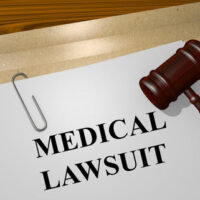Allergic Reactions to Prescription Drugs

Before prescribing a medication to a patient, doctors and pharmacists must be careful to take any of the patient’s allergies into account and must consider whether a certain drug will interact poorly with another prescribed medication. While many healthcare providers use great care to fulfill these duties by taking accurate and detailed patient histories and researching the potential complications of specific drugs, an alarming number are not so conscientious, which can have devastating consequences for individuals who could suffer from hives and rashes, difficulty breathing, or even go into anaphylactic shock.
While holding healthcare providers accountable for their negligence in prescribing certain medications is possible, doing so can be difficult, so if you were recently injured as a result of a medication error, it is important to speak with an experienced medical malpractice lawyer who can explain your legal options.
What are Drug Allergies?
Drug allergies are defined as the abnormal reaction of a person’s immune system to a certain medication taken orally, topically, or via injection. While any medication, whether herbal, over-the-counter, or prescription could induce a drug allergy, allergic reactions are more likely to occur with certain medications, many of which are prescribed. It’s important to note that a drug allergy is not the same thing as a drug side effect, nor is it the same as drug toxicity resulting from an overdose. Drug allergies can cause serious reactions, including anaphylaxis, which is a life-threatening medical condition that affects numerous body systems.
Signs of an Allergic Reaction
Although everyone reacts differently to certain medications, those who suffer an allergic reaction to a drug they have ingested typically experience specific symptoms, including:
- Skin rashes, hives, or itching;
- Fevers;
- Nasal congestion;
- A rapid pulse rate;
- A drop in blood pressure;
- Difficulty breathing;
- Facial swelling; and
- Dizziness.
While the more mild of these symptoms, including rashes and hives, could go away within a few hours of ingestion, severe symptoms could be life-threatening if left untreated.
Is Medical Negligence Responsible for Your Allergic Reaction?
Just because a person had an allergic reaction to a medication does not mean that the reaction was the result of medical negligence. Doctors and pharmacists, for instance, cannot be expected to know about an allergy that a patient doesn’t tell them about. It is possible, however, to hold a healthcare provider liable for an allergic reaction if:
- The physician failed to ask the patient about any drug allergies;
- The healthcare professional mistakenly prescribed or administered the incorrect medication;
- A patient was prescribed a medication that belongs to a certain group of drugs to which he or she had a known allergy;
- The physician prescribed a patient a higher than normal dose of a specific medication; or
- A physician administered a drug to a patient that is known to interact with a drug that he or she is already taking.
Please call a medical malpractice lawyer for help determining whether your own drug allergy was the result of medical negligence.
Medical Malpractice Lawyers
Contact an experienced medical malpractice lawyer today. The dedicated Fort Lauderdale medical malpractice attorneys at Boone & Davis offer free consultations to those who call 954-566-9919 or schedule an appointment via online message.
